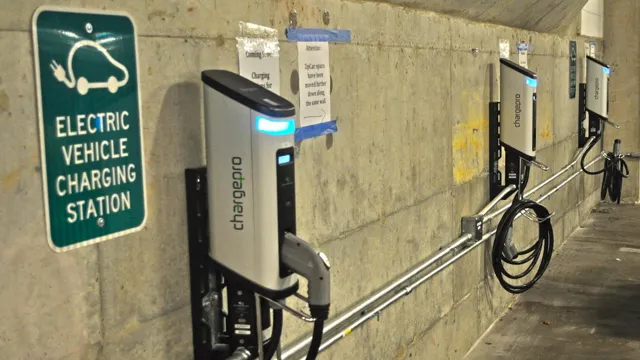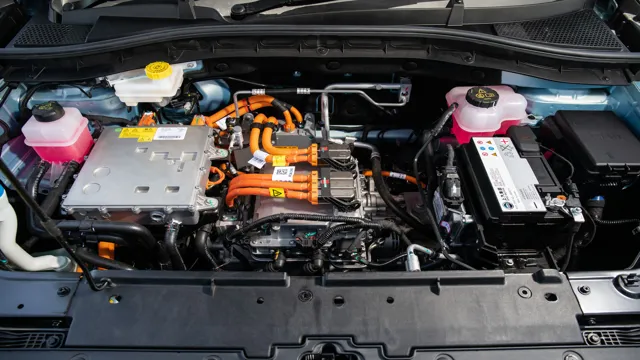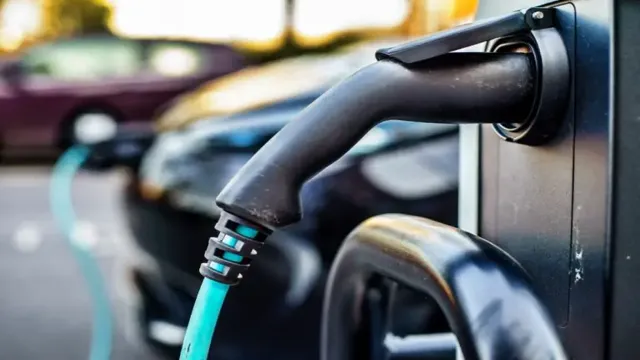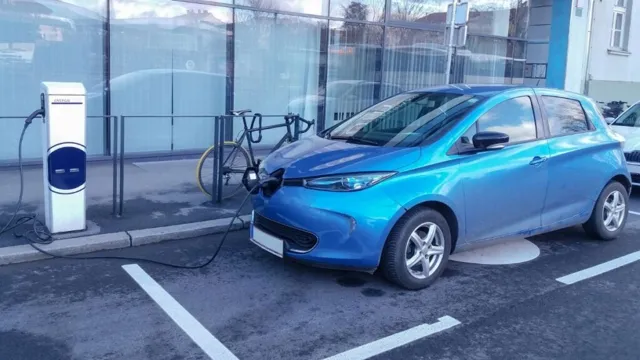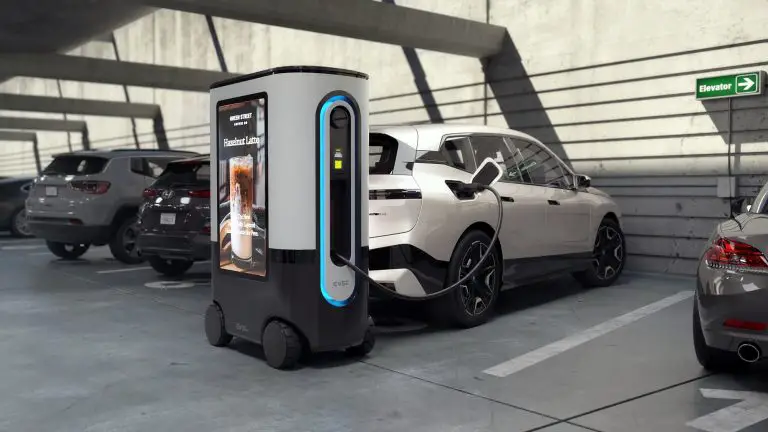Breaking the Charging Station Myth: Can all Electric Cars Share the Same Charger?
Electric cars are becoming increasingly popular as people become more environmentally conscious. While it’s great news for the environment, it also raises questions about how electric cars are charged and whether all electric cars can use the same charging stations. The answer is not as straightforward as one might think, but it’s important to know what options exist and how they differ from one another.
Firstly, there are different types of charging stations for electric cars. The most common are Level 1, Level 2, and Level 3 charging stations. Level 1 charging stations use a standard household outlet and can be used to charge electric cars overnight.
Level 2 charging stations are faster and require a 240-volt outlet. Level 3 charging stations, also known as DC fast chargers, can charge electric cars in as little as 30 minutes and require a special type of outlet. The different types of charging stations are not compatible with all electric cars.
Some electric cars can only be charged using Level 1 or Level 2 charging stations, while others are compatible with Level 3 charging stations. In addition, some electric car manufacturers have their own proprietary charging stations, making it difficult for other electric cars to use them. However, there are efforts to standardize charging stations for electric cars.
The most common charging standard is the Combined Charging System (CCS), which is used by many electric car manufacturers in Europe and North America. Another standard is the CHAdeMO standard used mainly in Japan. In conclusion, while not all electric cars can use the same charging stations, there are efforts to standardize charging stations with the aim of making it easier for electric car owners to charge their vehicles.
It’s important to know the charging options available and which charging stations are compatible with your electric car.
Types of Electric Cars
While all electric cars are powered by electricity, different types of electric cars have different charging requirements. While all-electric cars can use the same type of charging stations, not all charging stations are created equal. Charging stations can vary in the type of connector required to charge your car, the voltage of the power supply, and the speed of the charging process.
For example, most electric cars can use a standard Level 2 charging station, which provides a 240-volt power supply and requires a J1772 connector. However, some high-powered electric cars, such as the Tesla Model S and Model X, require a Level 3 charging station, which provides a 480-volt power supply and requires a different connector type. Additionally, some older electric cars may not be able to use fast chargers, while newer models typically support both fast charging and slower Level 2 charging.
So while all electric cars use the same basic fuel source, it’s important to consider the specific charging requirements of your vehicle when choosing a charging station.
Battery Electric Vehicles (BEVs)
Battery electric vehicles (BEVs) are one of the three main types of electric cars available in the market, alongside hybrid electric vehicles (HEVs) and plug-in hybrid electric vehicles (PHEVs). BEVs run entirely on electricity and are known for their zero-emissions, making them environmentally friendly. Unlike HEVs and PHEVs, which still use gasoline to generate power, BEVs only rely on their battery packs to store energy and power the car’s electric motor.
These electric cars must be charged before they can be used and can come in different sizes and shapes, from compact city cars to larger SUVs. Although some people may have concerns about range anxiety, BEVs have seen major advancements in technology and can travel on a single charge for over 300 miles. As technology continues to improve, BEVs are becoming more accessible and popular among environmentally conscious drivers.
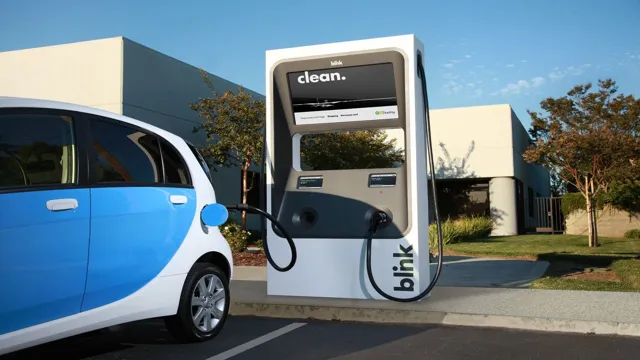
Plug-in Hybrid Electric Vehicles (PHEVs)
Plug-in Hybrid Electric Vehicles (PHEVs) When it comes to types of electric cars, one option to consider is the plug-in hybrid electric vehicle, or PHEV. These cars combine battery power with a traditional gasoline engine, allowing for extended range without the need for frequent charging stops. PHEVs typically have larger batteries than hybrid cars, meaning they can operate on electric power alone for longer periods of time.
When the battery runs low, the gasoline engine takes over, providing additional power and recharging the battery at the same time. This makes PHEVs a great option for drivers who want the benefits of an electric car, such as improved fuel efficiency and reduced emissions, without the range anxiety that comes with fully electric vehicles.
Types of Charging Stations
Many electric cars can use the same charging stations, but it all depends on the type of charging station your car needs. There are three different types of charging stations: Level 1, Level 2, and Level Level 1 charging stations use a standard 120-volt outlet, meaning that all electric vehicles can use this type of charging station.
However, Level 1 charging is very slow and can take up to 20 hours to fully charge a vehicle. Level 2 charging stations are much faster than Level 1 stations, with a charging rate of around 25 miles per hour. These require a 240-volt outlet and are typically found at public charging stations.
Most electric cars can use Level 2 charging stations, but some models may require an adapter. Level 3 charging stations, also known as “DC Fast Chargers,” are the fastest option and can charge a car in as little as 30 minutes. However, not all electric vehicles can use Level 3 charging stations, as they require a specific type of connector that may not be compatible with all models.
Overall, while many electric cars can use the same charging stations, it’s important to know which type of charging station is right for your specific vehicle.
Level 1 Charging Stations
Level 1 charging stations are the most basic types of charging stations available for electric vehicles (EVs). These types of charging stations provide a charging speed of up to 4 miles of range per hour and can be installed in any standard 120V outlet. They are commonly known as a “trickle charger” and are ideal for overnight charging at home, light-duty vehicle commuting, and low-mileage trips.
They are also the most affordable charging option for EV owners, and they typically come with the vehicle during purchase. However, Level 1 chargers may not be fast enough to charge batteries fully, and they are not suitable for extended road trips. Therefore, Level 1 charging stations are best suited for individuals who have short commutes and consistent daily driving patterns.
Overall, Level 1 charging stations are the perfect option for individuals seeking a reliable, low-cost, and convenient charging option for their EVs.
Level 2 Charging Stations
Level 2 Charging Stations As electric vehicles continue to become more popular, the need for charging stations is increasing. Level 2 charging stations are becoming more commonplace in public areas, allowing EV drivers to charge their vehicles quickly and conveniently. These stations use a 240-volt AC power supply and can fully charge a vehicle in a few hours, depending on the battery capacity.
There are two types of Level 2 charging stations: residential and commercial. Residential units are designed for home use, typically between 16 and 50 amps, and require a dedicated circuit. Commercial units, on the other hand, can range from 16 to 80 amps and are intended for use in public areas.
They can be found in locations such as parking garages, public charging stations, and commercial properties. With Level 2 charging stations becoming more accessible, electric vehicle owners have more options for keeping their cars charged and ready for the road.
DC Fast Charging Stations
DC fast charging stations are becoming increasingly popular as more people turn to electric vehicles and need a reliable way to charge them quickly. There are two main types of charging stations: Level 2 and DC fast charging. Level 2 charging stations are slower and typically used for charging at home or at work, while DC fast charging stations are much faster and are used for longer trips or on-the-go charging.
DC fast charging stations use direct current to charge the battery much quicker, with some stations capable of providing an 80% charge in just 30 minutes. This means that drivers can quickly top up their batteries while they grab a coffee or use the restroom. While there are some drawbacks to fast charging, such as increased wear and tear on the battery and decreased range per charge, the convenience of being able to charge quickly makes them a popular choice for many electric vehicle owners.
Compatibility Between Electric Cars and Charging Stations
If you’re considering purchasing an electric car, one of the primary concerns you may have is whether all electric cars can use the same charging stations. The short answer is yes, all electric cars can use the same charging stations, but there are some nuances to keep in mind. Most electric cars are designed with a standard set of charging ports, including the widely-used CCS (Combined Charging System) and CHAdeMO (Charge de Move) connectors, which are compatible with most public charging stations.
You’ll want to ensure that the charging station you’re using is compatible with your car’s charging port, but this is typically not an issue as most charging stations are designed to accommodate a wide range of electric cars. However, some older electric car models may not be compatible with newer charging stations, so it’s important to check the specifications of both your car and the charging station before use. Overall, with the increasing popularity of electric cars and the standardization of charging ports, finding a compatible charging station should not be a difficult task.
Most Electric Cars Can Use Most Charging Stations
When it comes to electric cars and charging stations, there is no need to worry about compatibility issues. Most electric cars can use most charging stations, regardless of the make or model. This is because most charging stations use universal charging standards, such as CHAdeMO and CCS, which are recognized by all electric car manufacturers.
Whether you own a Tesla, a Nissan Leaf, or a Chevy Bolt, you will be able to find a charging station that is compatible with your car. In fact, many charging stations are equipped with multiple charging cables to accommodate different types of electric cars. So, next time you’re on the road with your electric vehicle, don’t stress about finding a charging station that works with your car.
It’s highly likely that you’ll be able to charge up with ease.
Adapters and Standards Help with Compatibility
Electric cars and charging stations can have different connectors and protocols, which can cause compatibility issues. However, adapters and standards are increasingly helping to bridge the gap. For example, the CCS (Combined Charging System) is a common standard used by many electric car manufacturers and charging station networks.
It supports both AC and DC charging, and can provide up to 350 kW of power for fast charging. Tesla, on the other hand, has its own proprietary connector and protocol, but it also sells adapters that allow its cars to use other charging networks. Some newer electric cars, such as the Audi e-tron and Jaguar I-PACE, also have adapters built-in for different charging standards.
These efforts are making it easier for electric car owners to find and use charging stations, regardless of their brand or location.
Conclusion
In the end, whether or not all electric cars can use the same charging stations is ultimately up to the manufacturers and the charging infrastructure providers. However, it’s important to remember that regardless of the make and model of the electric vehicle, their shared commitment to a greener future means that they all have the power to plug into the same renewable energy grid. So, in a way, perhaps the real question should be: can the world’s charging infrastructure keep up with the growing fleet of electric vehicles? Only time (and some smart investments) will tell.
“
FAQs
What types of electric cars can use the same charging stations?
Most modern electric cars can use the same charging stations, though it’s best to check with the specific car manufacturer to be sure.
Do all charging stations offer the same charging time?
No, different charging stations may provide different speeds of charging. It’s important to check the charging time of a station before using it.
Can electric cars be charged at home or only at public charging stations?
Electric cars can be charged at home using a home charging station, which can be installed by an electrician. However, public charging stations are also available for use.
What types of charging connectors do electric cars use?
There are a few different types of charging connectors that electric cars can use, including CCS, CHAdeMO, and Tesla’s proprietary connector. It’s important to check which type of connector your car uses before charging.

